ap human geo unit 4: political geography
1/73
Earn XP
Description and Tags
Name | Mastery | Learn | Test | Matching | Spaced |
|---|
No study sessions yet.
74 Terms
state
basic organization of a group of people in defined borders. aka countries
gaining statehood (5 things)
-defined borders
-permanent population
-functional government
*effectively gain independence
*other countries view as independent
things to help recognize a country
embassy, join the UN, and trade
sovereignty
complete control of decision making without outside interference
territory
area of land under jurisdiction of a state, but hasn’t gained the full rights of being part of a state
territorial integrity
a government has the right to keep borders+territories intact and free from attack
territoriality
countries sense of property and attachment toward its territory. assert control over the geographical area
neo-colonialism
the practice of using economical control/political influence by a MDC to indirectly control a LDC
origin of a “modern” state
influenced by Europe(the hearth)
political state
territory defines society
nation
groupof people in given geographical area with common culture/heritage. people define, not borders
nation state
most ethnically homogeneous state with a sovereign government with clearly defined border
-often nations will push for independence, which shows difference between nationality
example of nation-state: Basque region
in northern spain and sw france
has own unique heritage/culture that’s not French or spanish
multinational state
a state with many natons within. eg: usa and canada
multi-state nation
a single nation that spreads across many states. eg: arabs
stateless nation
nation that doesnt have a state to call home. not dominant in any state. eg: kurds
centriputal
force that unites. eg:religion, political party, education
centrifugal
force that divides. eg: race, class, war
boundary
goes up in the air and below surface
4 steps to establish a boundary
define: legally using longitude/latitude in legal documents
delimit: write/draw out on a map
demarcate: mark boundary(fence, wall, post)
administrate: determine how people and goods will get across
geometric boundary
use of longitude and latitude
natural/physical boundary
use of physical features(rivers, lakes, mountains). however a limitation is that features can move
antecedent boundary
drawn before area is populated
subsequent boundary
drawn after the cultural landscape has been developed.
eg: jerusalem
relic boundary
no longer exists but left a cultural impact.
eg: berlin wall
super imposed boundary
boundaries forces on a country by conquering/colonizing power.
eg: all of africa (berlin conference)
definitional boundary dispute
problems with the legal language used to define property
locational boundary dispute
argue over the demarcation
operational boundary dispute
neighbors disagree on how border should function
allocational boundary dispute
over natural resources
exclave
region of a country that’s separated from the main part. eg alaska
enclave
state completely surrounded by another state

law of the seas (UNCLOS)
ocean/sea/water laws
UNCLOS zone 1: territorial sea
up to 12 nautical miles of sovereignty; commercial vessels may pass, but non-commercial vessels may be challenged
UNCLOS zone 2: contiguous zone
limited sovereignty up to 24 nautical miles- can enforce laws on customs, taxes, immigration and pollution.
UNCLOS zone 3: exclusive economic zone (EEZ)
can explore, extract minerals, and manage up to 200 nautical miles (230 miles)
exception- if your continental shelf is beyond the limit than can petition for up to 350 nautical miles
UNCLOS zone 4: high seas
beyond the EEZ is open to all states
median line principle
if zones overlap, most common is just to divide in half
federal gov
2 levels of gov(central+state)
political powers shared(by 2 levels of gov)
2 diff types of law (central+state)
unitary gov
1 level of gov(central)
political power held by only central gov
only 1 set of law(uniform) for whole state
pros of federal gov
fits needs of people in different places
cons of federal
diff laws in diff places, harder to keep track/in order
pros of unitary
everyone has the same laws/rule
cons of unitary
minority groups feel as is if they have little to no voice
semi-autonomous
some independence
autonomous
full independence
compact state shape
small, more unified
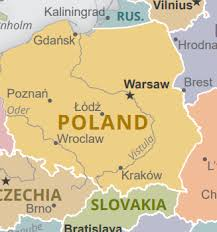
fragmented state shape
scattered all over; divider because not well connected to each other
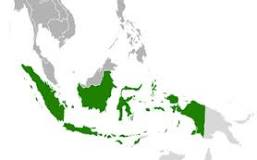
perforated state shape
completely surrounds another state
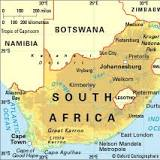
elongated state shape
long and narrow; divider bc hard to unite when far apart
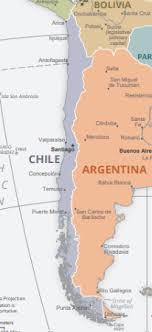
prorupted state shae
long part that sticks out; divider bc harder to unite long part to main part
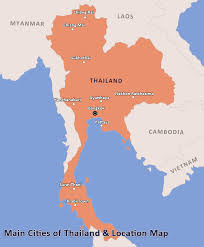
land locked state shape
no access to water
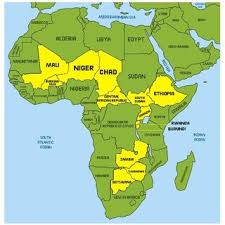
devolution
movement of power from central to regional gov. can lead to autonomous, semi-autonomous, or even a new state
type of devolution: ethnocultural
region in country that sees theirself as diff from the rest of the country. eg: Scotland and native groups in the us
type of devolution: economic
region/province that’s richer than the rest of the country. doesn’t wanna pay for everyone else
eg: catalonia
type of devolution: spatial
far away/separated from the rest of the country. eg: hawaii
balkanization
when devolution leads to a new country
irredentism
demand places back because culturally/historically connected to your country.
eg: Russia wants Crimea
shatterbelt
region has instability bc its in-between 2 feuding countries
gerrymandering
redistricting for the advantage of your party
packing
pack most of the opposing party into few districts so that your party has more districts
cracking
breaking up districts so that the opposing party isn’t in the majority
geopolitics
looks at who in the world has all the power
territoriality
how do countries exert power to protect their borders
impact of resources
resources give you power
regional conflicts
how does your location and access to things give you power
world systems theory: 3 tier system
top exploits middle and bottom.
middle exploits bottoms
bottom is exploited by everyone
world systems theory: core
the top: stage 4+5, MDC, everyone works for them, makes lots of money. eg: US
core proccesses
use advanced tech:computers, machines, robots.
semi-periphary
middle, tech+labor, exploited by top, and exploits bottom
periphery process
stage 2, LDC, most in sub-saharan africa, manual labor/by hand, works for every core country
supranational organization
an organization of 3 or more states whose goal is economic stability and growth, as well as political unity.
eg: EU, Africian Union, OPEC
pros of supranational organizations
more powerful as a group rather than individual
migration+trade moves freely across border
common policies
cons of supranational
give up some sovereignty for the greater good for the organization
common policies (doesn’t align w/ beliefs or doesn’t favor certain places)
membership dues
wealthy countries have to support poorer countries